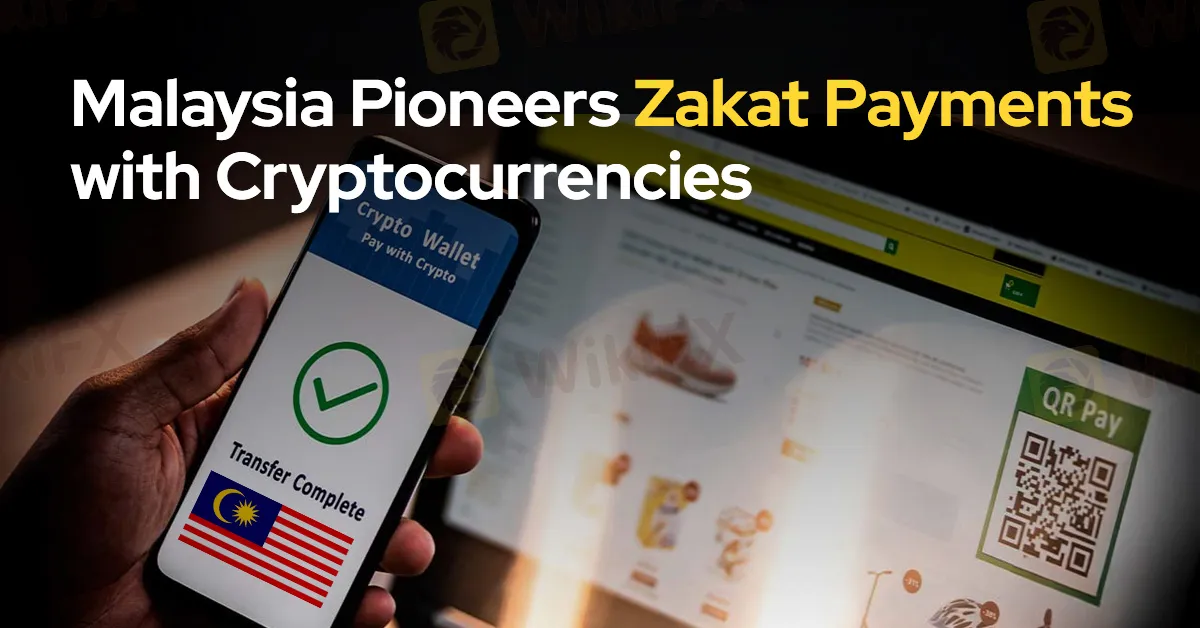简体中文
繁體中文
English
Pусский
日本語
ภาษาไทย
Tiếng Việt
Bahasa Indonesia
Español
हिन्दी
Filippiiniläinen
Français
Deutsch
Português
Türkçe
한국어
العربية
Malaysia Pioneers Zakat Payments with Cryptocurrencies
Sommario:Malaysia has taken a significant step in modernising religious practices by becoming the first country to enable zakat payments through digital assets.

Malaysia has taken a significant step in modernising religious practices by becoming the first country to enable zakat payments through digital assets. This initiative reflects the nations efforts to adapt Islamic practices to the evolving landscape of blockchain technology and cryptocurrency.
The Federal Territories Islamic Religious Council's Zakat Collection Centre (PPZ-MAIWP) spearheaded this innovation, aiming to educate Muslims about fulfilling their zakat obligations in the digital age. PPZ-MAIWPs chief executive officer, Datuk Abdul Hakim Amir Osman, emphasised the importance of raising awareness about the potential of digital assets as a new source of wealth, particularly among younger generations.
Reports reveal that Malaysians collectively hold digital assets worth approximately RM16 billion. These assets are now subject to zakat, with specific guidelines for their calculation. Within the age group of 18 to 34, 54.2 per cent of investors are involved in cryptocurrencies, highlighting a significant trend among the younger demographic. This shift, according to PPZ-MAIWP, presents an opportunity to integrate these digital holdings into zakat contributions.

Zakat in Malaysia is an obligatory almsgiving for Muslims, serving as a form of wealth purification and social welfare. It requires eligible individuals to contribute a portion of their wealth, typically 2.5% of savings, to assist the needy, such as the poor, orphans, and those in debt. Zakat payments are managed by state religious authorities, ensuring proper distribution. This act of charity is a fundamental Islamic duty aimed at promoting economic balance and community well-being.
The Federal Territories' Islamic Legal Consultative Committee ruled during its 134th session that digital currency qualifies as a tradable commodity. As a result, business zakat for digital assets has been set at a rate of 2.5 per cent. This ruling ensures that the evolving financial landscape aligns with Islamic principles, maintaining the relevance of zakat obligations in modern times.
The integration of digital assets into zakat collection reflects a broader vision of how Islam continues to adapt to meet the needs of its followers. The digitalisation of religious practices underscores the dynamic nature of Islamic teachings, which remain flexible in accommodating technological advancements.
The financial impact of this initiative has already shown promise. Zakat collection from digital assets increased by 73 per cent in 2023, amounting to RM25,983.91. This year, the collection has further grown to approximately RM44,991.97, indicating a steady rise in contributions through this innovative channel.
Malaysias move to embrace digital assets for zakat payments demonstrates its leadership in blending tradition with modernity. By acknowledging the significance of cryptocurrencies and other digital holdings, the country is setting an example of how religious and financial obligations can coexist in a rapidly changing world. This initiative not only strengthens the zakat collection system but also reaffirms the role of Islam in guiding its followers through contemporary challenges.

Disclaimer:
Le opinioni di questo articolo rappresentano solo le opinioni personali dell’autore e non costituiscono consulenza in materia di investimenti per questa piattaforma. La piattaforma non garantisce l’accuratezza, la completezza e la tempestività delle informazioni relative all’articolo, né è responsabile delle perdite causate dall’uso o dall’affidamento delle informazioni relative all’articolo.
WikiFX Trader
XM
IC Markets Global
EC Markets
TMGM
Vantage
Neex
XM
IC Markets Global
EC Markets
TMGM
Vantage
Neex
WikiFX Trader
XM
IC Markets Global
EC Markets
TMGM
Vantage
Neex
XM
IC Markets Global
EC Markets
TMGM
Vantage
Neex
Rate Calc






